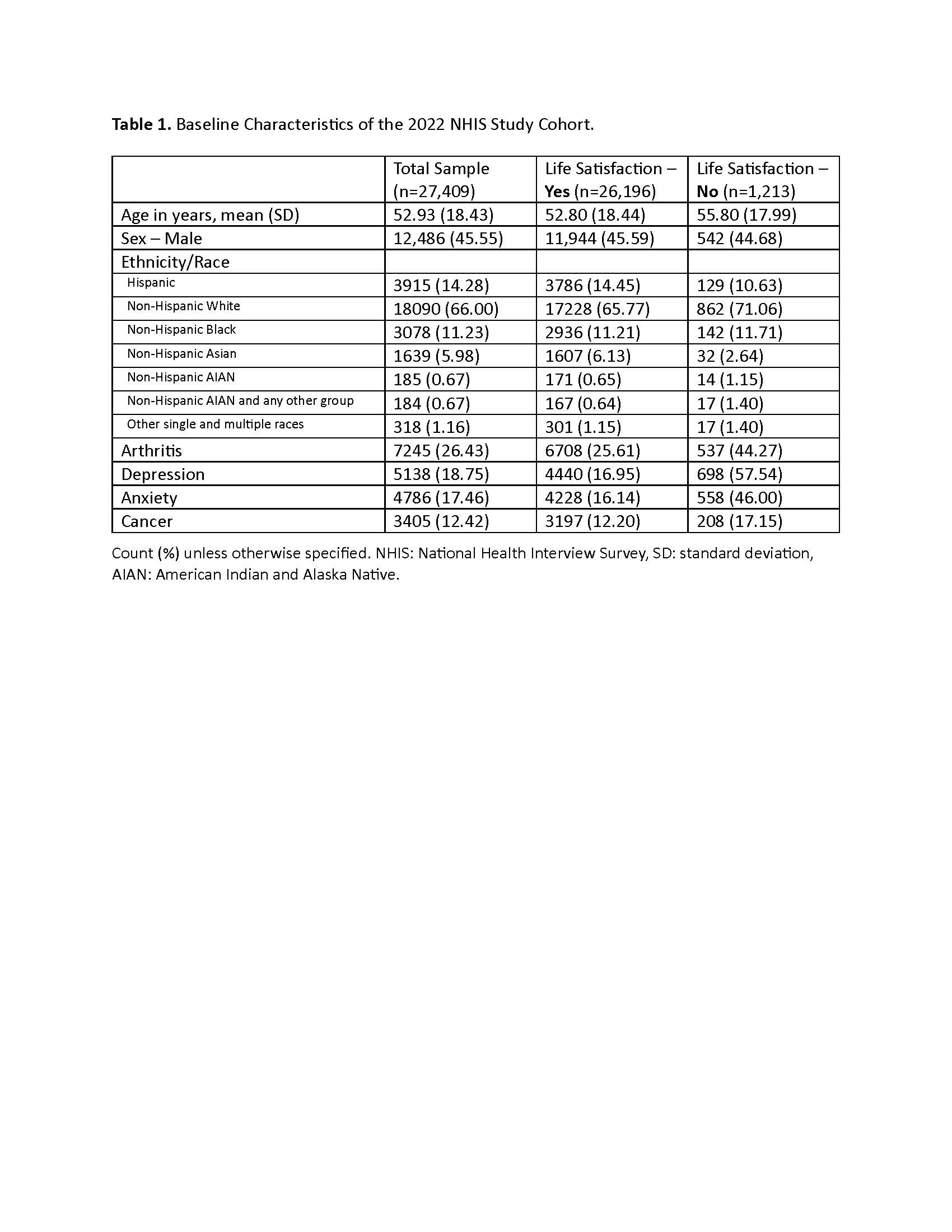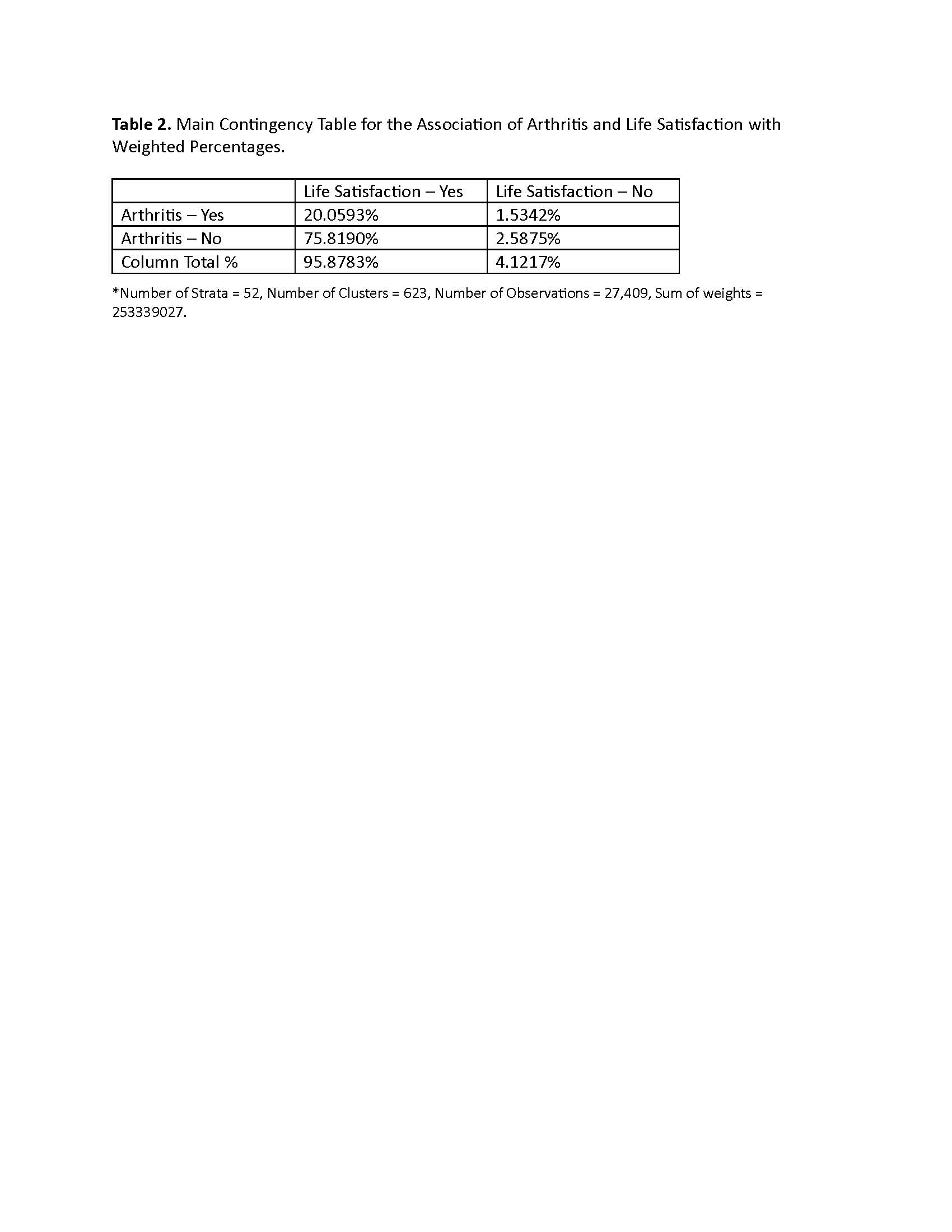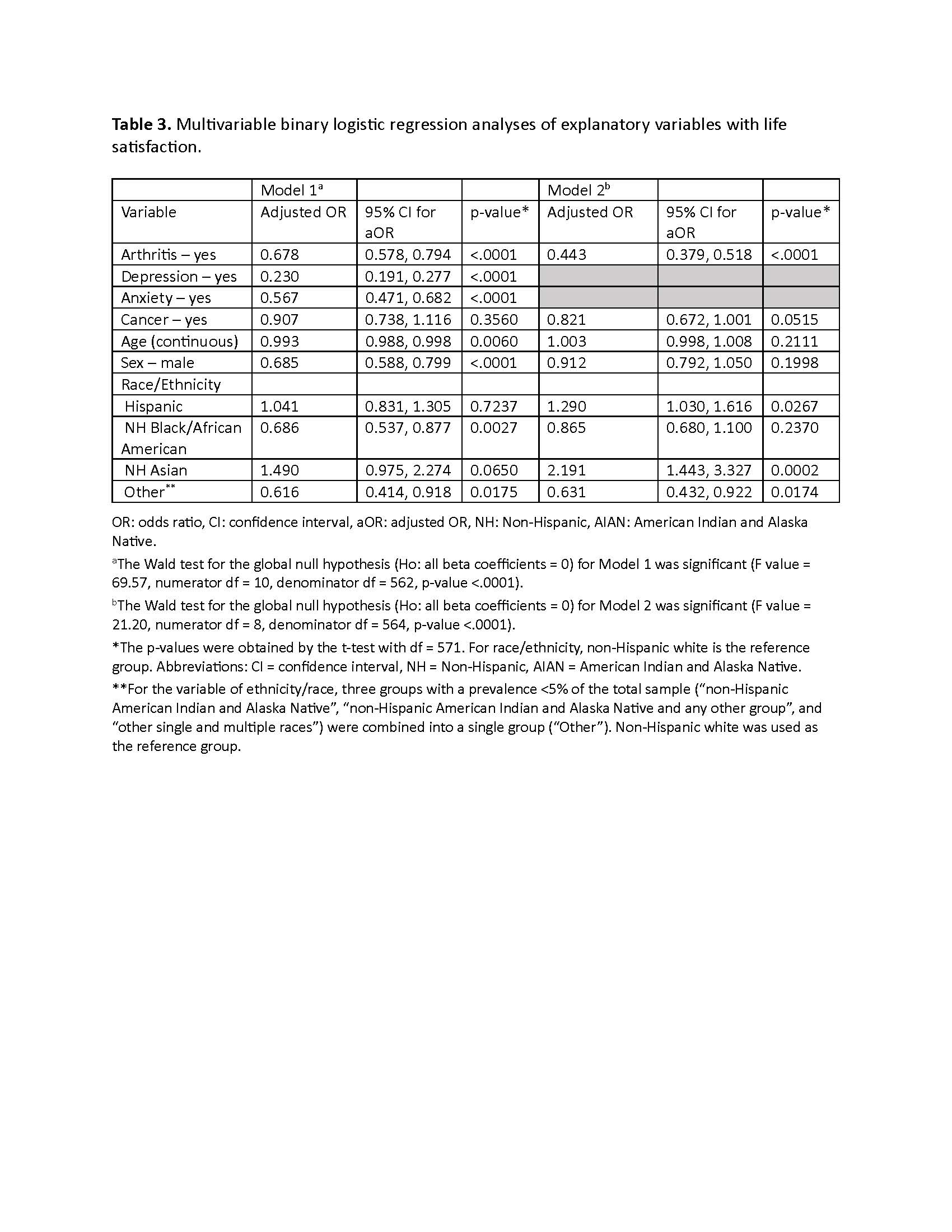Session Information
Session Type: Poster Session B
Session Time: 10:30AM-12:30PM
Background/Purpose: General well-being, an individual’s subjective assessment of their life overall, may be impacted by arthritis. It is unclear if adults with arthritis have lower life satisfaction. We evaluated the relationship of arthritis with life satisfaction in adults from the National Health Interview Survey (NHIS).
Methods: Data Source. The NHIS is a cross-sectional US household-based annual survey, which employed a stratified cluster sample design to select the sample of dwelling units from commercial address lists. A randomly selected adult per household completed computer-assisted personal interviewing and telephone interviews (response rate=47.7%).
Study Cohort. Respondents ≥18 years of age with complete data from 2022 NHIS were included. Our final sample size was 27,409 adults.
Primary Outcome. Life satisfaction was assessed by the question: “In general, how satisfied are you with your life? Are you very satisfied, satisfied, dissatisfied, or very dissatisfied?”. Responses were dichotomized into satisfied (very satisfied/satisfied) or dissatisfied (very dissatisfied/ dissatisfied) groups for analyses.
Explanatory Variables. Prevalent arthritis was assessed by the question: “Have you EVER been told by a doctor or other health professional that you had some form of arthritis, rheumatoid arthritis, gout, lupus, or fibromyalgia?”. This represents the construct of chronic musculoskeletal rheumatic diseases amongst adults. Additional key demographics and medical comorbidities were included in analyses.
Statistical Analysis. To account for the complex NHIS sampling design, including stratified cluster sampling, we used a design-based analysis approach. Analyses included information for stratum, clustering and sample weights. We performed analysis of categorical variables with life satisfaction with the second order Rao-Scott Chi-square test to adjust for design-effect. Next, multivariable logistic regression analyses were performed (in SAS), and two models were fit (Model1: all explanatory variables; Model2: without depression and anxiety).
Results: Sample characteristics are shown in Table 1. 26.43% of subjects reported prevalent arthritis. A second-order Rao-Scott Chi-square test for the association of arthritis and life satisfaction was significant (97.9528, df = 1, p< 0.0001), with an unadjusted odds ratio (OR) of 0.4462 (95% CI 0.3885-0.5125) (Table 2).
Multivariable logistic regression modeling of explanatory variables with life satisfaction is shown in Table 3. Individuals with arthritis had decreased odds of life satisfaction (Model1: aOR = 0.678 [0.578, 0.794], p < .0001; Model2: aOR = 0.443 [0.379, 0.518], p < .0001) compared with individuals without arthritis. Depression and anxiety reduced the effect of arthritis on life satisfaction; however, arthritis had an independent effect when adjusting for all covariates.
Conclusion: Individuals living with arthritis had decreased odds of reporting life satisfaction compared to those without arthritis. Comorbid depression and anxiety may be confounders as they reduce the independent effect of arthritis on life satisfaction. Therapeutic strategies amongst adults with arthritis should address life satisfaction.
To cite this abstract in AMA style:
Lenert A, Charlton M, Oleson J, Domsic R, Ferguson P. Life Satisfaction in Adults Living with Arthritis – a Cross-Sectional Analysis of the 2022 National Health Interview Survey [abstract]. Arthritis Rheumatol. 2024; 76 (suppl 9). https://acrabstracts.org/abstract/life-satisfaction-in-adults-living-with-arthritis-a-cross-sectional-analysis-of-the-2022-national-health-interview-survey/. Accessed .« Back to ACR Convergence 2024
ACR Meeting Abstracts - https://acrabstracts.org/abstract/life-satisfaction-in-adults-living-with-arthritis-a-cross-sectional-analysis-of-the-2022-national-health-interview-survey/



